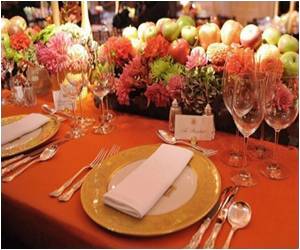
Under a deal with an entrepreneur based in the US city, some 50,000 bottles a month of makgeolli will be produced, a spokeswoman for the company said.
"This will be the first makgeolli brewery outside the country," she told AFP without being drawn on the cost.
Makgeolli, once known as "farmer drink", dates back at least to the 10th century. Its popularity waned in the early 1960s when the government restricted the use of rice for making alcohol in order to combat rice shortages.
Unpopular wheat-based varieties caused drinkers to turn to beer and other liquors. In 1989 authorities authorised the use of rice for brewing but it took at least a decade for makgeolli to regain its reputation and market share.
In recent years improved recipes and a claimed nutritional value have sent sales soaring and made it a fashionable drink in Seoul's upscale bars.
Advertisement
Makgeolli exports hit $52.8 million last year, up a whopping 176 percent from a year earlier and a twelvefold rise from 2008.
Advertisement
Tax service figures show makgeolli still far behind its better-known rival beverage soju but the gap is shrinking.
Makgeolli production rose from 260,640 kilolitres in 2009 to 412,269 kl in 2010. Production of soju, which normally has an alcohol content around 20 percent, increased from 930,020 kl in 2009 to 931,322 kl in 2010.
The Baesangmyun spokeswoman attributed makgeolli's surge in popularity at home and overseas to its supposed health effects and a government-led campaign to promote Korean food and drink globally.
Riding the wave of Korean pop culture that swept Asia and other parts of the world, South Korea in 2008 launched a campaign to globalise its unique cuisine.
This included setting up Korean culinary schools abroad, developing and propagating standard recipes and offering cheap loans to local restaurants which wanted to open overseas branches.
Baesangmyun CEO Bae Young-Ho has said he believes makgeolli can help turn American taste buds to Korean food.
The slightly sweet and sour beverage, with an alcohol volume of 6-8 percent, is the perfect accompaniment to many Korean dishes -- especially traditional pancakes and steamed pork wrapped in kimchi.
Professor Lee Dong-Ho of Seoul National University Hospital has described makgeolli as a healthy drink full of vitamins, fibres and beneficial micro-organisms.
"Apart from the alcohol, drinking makgeolli is like drinking nutritional supplements," Lee was quoted as telling Health Chosun magazine.
Makgeolli has already made its US debut, with shipments there growing ninefold between 2008 and 2011 to $1.9 million.
But while salgyun (sterilised) makgeolli must be used for exports, saeng (unsterilised) makgeolli will be brewed in Chicago. Because the yeast is still fermenting in saeng makgeolli, it must be produced locally and drunk quickly.
Raw materials such as rice and nuruk -- yeast cakes composed of wheat, rice and barley with fermenting micro-organisms -- will be shipped from Seoul.
The company also hopes to open breweries in San Francisco and Los Angeles.
Source-AFP









